
KRAS biomarker and colorectal cancer

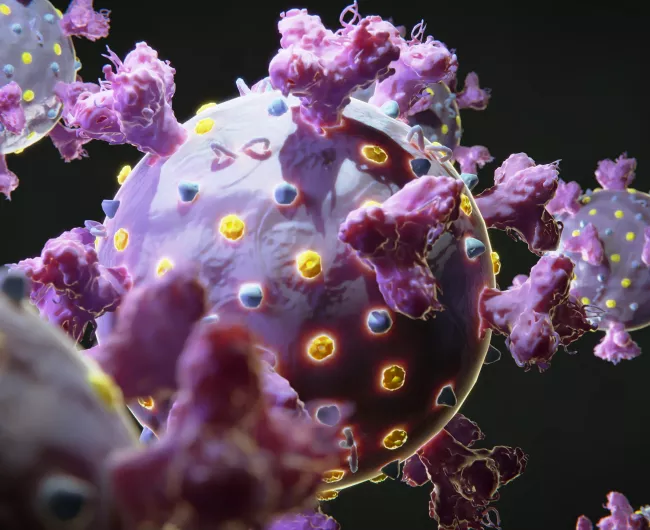
What is a KRAS biomarker?
KRAS is a member of the RAS family of genes that include NRAS and HRAS.
A normal KRAS gene teams up with a group of proteins as an “on/off” switch to monitor cell growth. An abnormal mutation in the KRAS gene happens early in the development of cancer.
This abnormality is known as a driver mutation because it causes the switch to be locked in the “on” position and drives uncontrolled cell growth, leading a tumor to form.
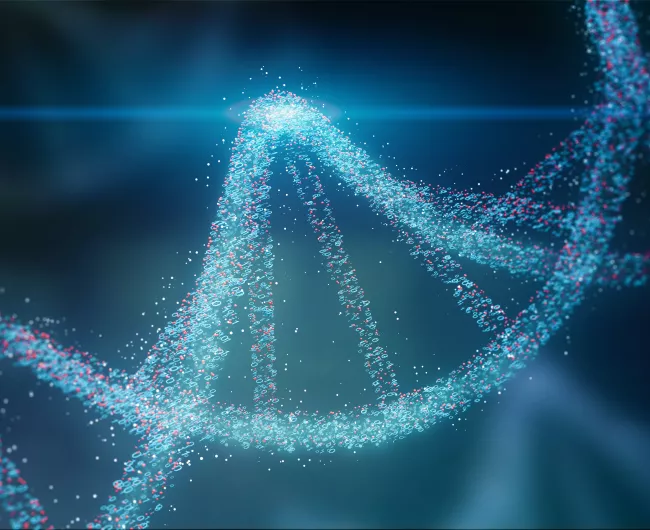
How common are KRAS mutations?
Approximately 40-45 percent of colorectal cancer patients have a KRAS mutation in their tumor.
A KRAS mutation is not hereditary (a germline mutation) and will not be passed from one generation to another in a family.
All KRAS mutations happen randomly and are somatic or non-hereditary mutations. The most common KRAS mutations are G12V, G12D, G14D, G12C, and G12A.
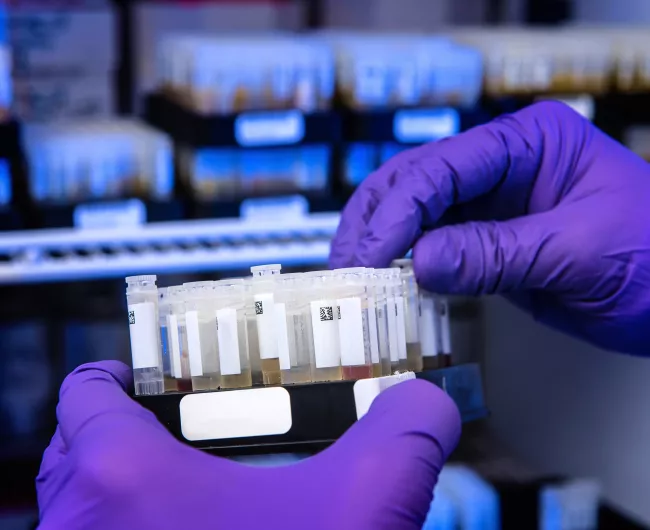
Who should have KRAS biomarker testing?
Patients with stage IV (metastatic) colorectal cancer should be tested for KRAS mutations.
KRAS status must be determined prior to the start of any EGFR-inhibitors, as a positive KRAS mutation is a predictor of a poor response to these drugs.
Video: understanding RAS mutations


What treatment options are available?
Patients with mutated or unknown KRAS status should receive chemotherapy, including FOLFOX, CAPOX, or FOLFIRI with or without bevacizumab.
A small percentage of colorectal cancers have changes in the KRAS gene, which can cause abnormal cell growth and lead to cancer. KRAS is a member of the RAS family of genes that includes NRAS and HRAS.
Receiving FDA approval in June 2024, Adagrasib (Krazati) is a drug that targets the KRAS protein and is approved to treat colorectal cancer that harbors a specific mutation (G12C).
In March 2025, the FDA approved sotorasib (Lumakras™) plus panitumumab (Vectibix™) for adults with KRAS G12C-mutated metastatic CRC who have previously received fluoropyrimidine-, oxaliplatin-, and irinotecan-based chemotherapy.
Other drugs targeting KRAS proteins are currently being tested in multiple clinical trials.

What are potential side effects from treatment?
Every treatment has the potential to cause some side effects. Some people may be more sensitive than others to a particular drug. The response to a specific treatment also depends on your other treatments (for example, radiation) and medications.
What are the side effects of KRAS-targeted therapy drugs?
Possible side effects include nausea, vomiting, diarrhea, muscle and joint pain, fatigue, decreased appetite, and changes in liver and kidney function.
Talk to your care team about what you can expect when taking these drugs. Side effects that are more serious but rare include:
- abnormal heart function
- liver damage
- lung disease (interstitial lung disease)
Contact your doctor immediately if you are experiencing severe symptoms.
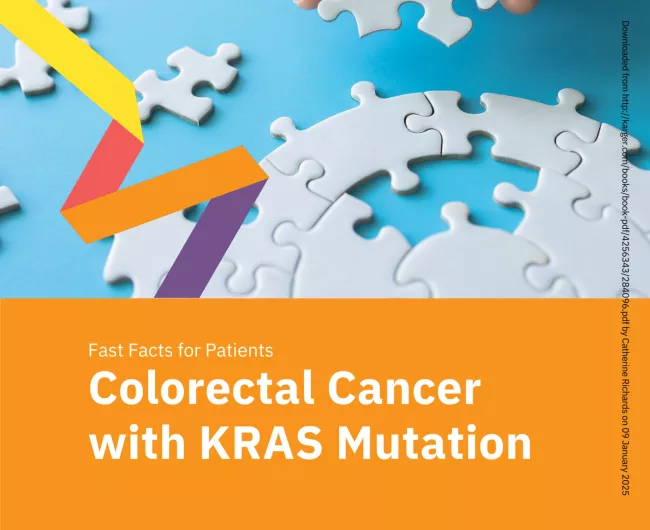
KRAS Resources
Are you curious to learn more about the KRAS biomarker? This digital booklet, developed in partnership with Karger Publishers Ltd, helps outline key information about the KRAS biomarker in colorectal cancer patients.
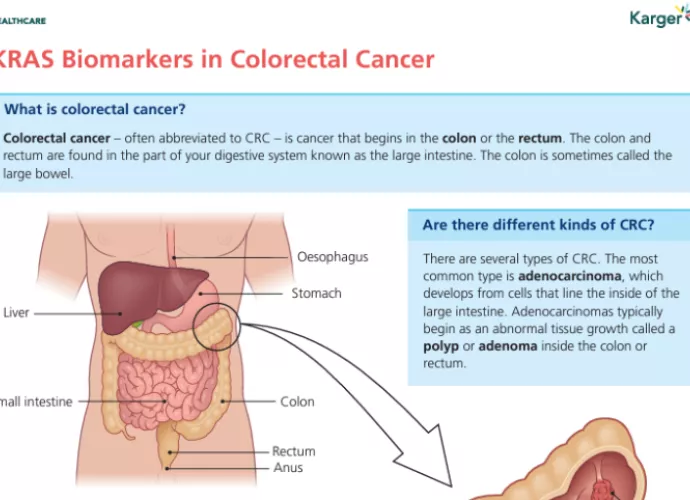
KRAS biomarker summary sheet
Understanding biomarkers can be overwhelming and confusing. This summary sheet, developed in partnership with Karger Publishers Ltd, helps outline key information about the KRAS biomarker in colorectal cancer patients.
Biomarker awareness content developed in partnership with
Other biomarkers
Microsatellite Instability Biomarker (MSI-H)Top resources

Bringing biomarker testing within reach: CLEAR for CRC to empower patients from day one
Biomarker testing can guide colorectal cancer treatment and improve outcomes. Learn how CLEAR for CRC is helping patients access this critical tool.

John E.: Biomarker testing uncovered a pivotal treatment option
After a grim prognosis, biomarker testing revealed a targeted treatment option for John E. Learn how knowing your biomarkers can change what’s possible.

2025 ASCO update: Six big studies
The 2025 ASCO Annual Meeting featured several important studies that could change how colorectal cancer is treated, including a pivotal study for BRAF V600E patients.






